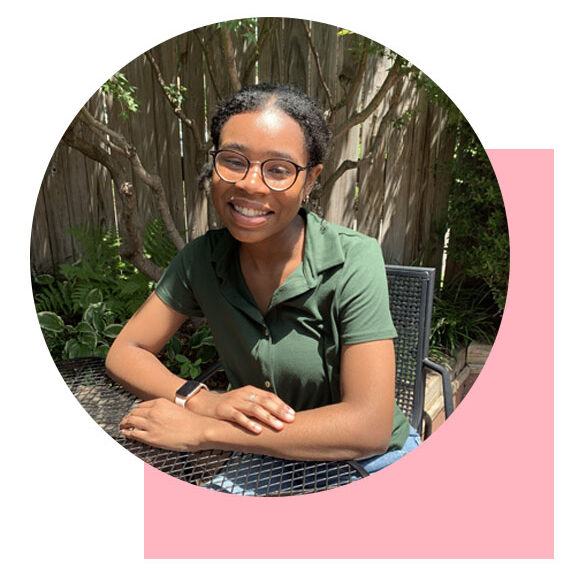How To Submit a BOMB College Application

It’s that time of year again: high school seniors are on the rush to finish their college applications before the early and regular decision deadlines. It’s a stressful time, an exhilarating time. It feels like your best life at the perfect college is just around the corner if you just do all of the “right” things.
First off, if you’re reading this as a current hs senior or junior, I would like to say CONGRATULATIONS! Because you’ve made it through the all-nighters, projects, exams, and finals that the first half of hs threw at you, and you’re now an upperclassman. So I’m serious, before you continue reading, queue up Congratulations by Post Malone and throw yourself a little dance party. You deserve it!
Another thing I would definitely recommend you do before you start stressing about the whole application process (or if you’re already in the thick of stressing about it, and you need a little boost of morale) is to read Where You Go Is Not Who You’ll Be by Frank Bruni. The gist of the book is, well, the title. We all spend so much time stressing about getting into the perfect college. So repeat after me and ingrain this in your mind: I am an amazing person with an amazing mind, and I will do amazing things in this world no matter what college I get into. If you don’t yet believe this statement, work towards believing it! How can you write about how qualified you are to go to college without first having confidence in yourself?
Pep talk aside, now for what you really came for: how to submit the best college application you possibly can. I like to break the application process into 4 major components: the SAT, the personal statement, individual college essays, and the extracurricular list.
Get Organized + Fill Out Basic Application Information
Ok, this is the crucial first step for success before you begin everything: get out your planner, Google Calendar, or whatever you use and record all the important dates and deadlines. Have a special color for college-related stuff. I also recommend having a spreadsheet of all the important college information you keep googling, like app requirements, average SAT scores, and tuition cost for each college. Giving yourself deadlines by which you need to complete certain essays and other portions of the application is also a great way to keep more organized and less stressed.
I would fill out the background information on the Common App ASAP. It’s something simple you can do to jump-start the process and make you feel like you’re getting things done. Feeling lazy, and don’t want to work on anything else? Check this task done, and your cluttered brain will thank you.
SAT + SAT Subject Tests
Arguably the least enjoyable part of the whole application process, at least it was for me. That’s why it should be dealt with ASAP. Studying takes up a lot of brainpower, so if you can get it done during the summer, I definitely recommend it.
The SAT is like any other test which means you have to practice A LOT before you can get the score you want. The key to studying is being consistent and setting goals for yourself. For me, studying 3-4 times a week for 2-3 hours each session worked the best. I also took a practice test every other weekend, if not every week (3 hours to take the test + 1 hour of grading and reviewing mistakes). With such a big-time commitment, that’s why SAT prep is best done in the summer without the pressures of other school work. I’ll make a separate post about studying for the SAT, so watch out for that in the future.
Many selective schools and scholarship programs require students to take two SAT subject tests. Your chosen major will determine which ones you should take. For example, since I was applying to get into engineering schools, I took the Math II and Biology subject tests. The best time to take a subject test is after taking the corresponding AP class, like AP Biology for the Biology test. If you understood the material in a class setting, I’ve heard the subject tests are a breeze. Haven’t taken the AP class that corresponds to the subject test you need to take? I found myself in that exact situation my senior year, so don’t sweat it: pick up a prep book and study the material yourself. Try not to stress too much about subject tests, especially if you haven’t taken a class for the subject material. Application committees will recognize that and take it into consideration.
The Personal Statement
I’ve heard about this essay since I was a little kid. This seemingly huge, daunting task where you feel like you’re asked to sum up the whole of your life experience into about 600 words. That’s how I felt when I started thinking about this essay, which is obviously not the best headspace to be in. The better way to tackle the personal statement is to write about certain aspects of yourself. You’re not trying to encompass your entire being into the essay, but you definitely want to highlight the best facets of yourself.
I started thinking about what I would write during the summer, which is definitely the best tactic for writing a well fleshed out essay. The more time you think about the prompt and your ideas, the better the essay will be. You can find inspiration for a personal statement almost anywhere. Did a particular ray of sunlight hit your eye on your walk to the bus and remind you of that one impactful summer spent at the beach that contributed to your interest in environmental science? But for real, this was the state of mind I was in while trying to come up with my personal statement topic. Every chance encounter or observation made me think, “wow, you could write a great college essay about that”. Of course, don’t go throughout life looking for an essay angle, but this step of the process was built for you to be reflective.
This is your chance to unlock your inner writer because we all have one within us that can draw from our unique collection of memories, ideas, and experiences. Your experience might not be unique, but your perspective on it can be! I plan on writing a whole separate post about personal statements, so stay tuned for that as well!
Individual College Essays
Each college or university has its own essay questions for students to respond to. The more selective schools will normally have another 600-word one along with a 250 -word. Some schools will just have a series (around 3-5) of 300-word short answers. These questions are designed specifically to let the admissions committee know why you are a great candidate for their particular school.
To do your best on these questions, you must thoroughly research the school and show your interest in particular programs, faculty, notable alumni, spots on campus, etc. You are applying to the school for a reason, and this is your chance to show the reader of your application the reason why you want to come to their school, and why they want YOU to come to their school. How will you contribute to their unique school environment? Are you interested in a particular campus organization that is similar to the one you’ve done in hs or that wasn’t offered at your hs? The more specific you are with your intentions, the better!
Extracurricular List
This may seem like a small section hidden away within the Common App, but treat it seriously! It is basically your resume of the ten most notable activities and achievements in hs. You can even create an actual resume to attach to your application under additional information if you would like to include anything extra (Google Docs has a great resume template, and there are plenty of others online to look at specifically for students).
When trying to choose which activities to include, focus on the ones where you’ve had a significant time commitment and that you actually enjoy. So, being on the golf team that one time in sophomore year because you thought it would be cool to have on your resume (*cough, cough me*), probably shouldn’t make the list.
As for the actual writing of the descriptions of each activity, you should follow a good resume protocol. As the word count for each description is limited, they should be concise, so you don’t have to write full sentences. A good habit is to start with an action word (lead, organized, completed) or your organization title. You should also make sure to include any activity you did specifically within the organization. For example, “Student council representative for four years, where I organized pep rallies and student campaigns” instead of just “I served on my student council for four years” . Of course, be more specific on what “campaign” you helped organize, but you get my point.
And there you have it, folks! Those are the main components of completing a college application. Hope this was helpful. Remember, don’t stress and don’t procrastinate! I definitely did too much of both my senior year, and it’s really just not worth it. Enjoy your senior year and make memories! Realize you have to complete all these tasks, but if you stay organized, you’ll come out of this season of life feeling like the champ you are.
Sincerely,
Lindsey
Did I miss any information you think would be helpful? Comment down below and let me and other readers know your best advice and tips!

Hey! I’m Lindsey,
a computer science student at Princeton University. Welcome to my blog! I wanted a space to capture my thoughts online about school, fashion, and anything else that might interest me in life. I hope you learn a little something while you’re here. Enjoy!

0 Comments